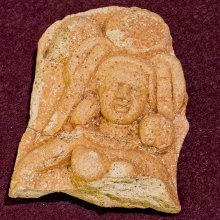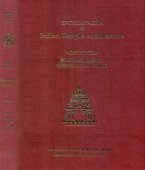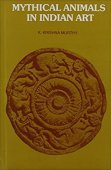Shunga, Śuṅga, Śuṅgā: 13 definitions
Introduction:
Shunga means something in Hinduism, Sanskrit, the history of ancient India, biology. If you want to know the exact meaning, history, etymology or English translation of this term then check out the descriptions on this page. Add your comment or reference to a book if you want to contribute to this summary article.
Shunga has 12 English definitions available.
The Sanskrit terms Śuṅga and Śuṅgā can be transliterated into English as Sunga or Shunga, using the IAST transliteration scheme (?).
Images (photo gallery)
Languages of India and abroad
Sanskrit dictionary
[Deutsch Wörterbuch]
Source: Cologne Digital Sanskrit Dictionaries: Böhtlingk and Roth Grosses Petersburger WörterbuchŚuṅga (शुङ्ग):—
1) m. a) Ficus indica und Spondias mangifera [Medinīkoṣa g. 25.] — b) Nomen proprium eines Mannes [Pāṇini’s acht Bücher 4, 1, 117.] [Pravarādhyāya] in [Weber’s Verzeichniss 61, 15.] pl. seine Nachkommen ebend. [?62, 17. LĀṬY. 4, 6, 20. Aśvalāyana’s Śrautasūtrāni 12, 15 PARIŚ. NIDĀNA 5, 8.] Name einer auf die Maurya folgenden Dynastie [Viṣṇupurāṇa 4, 24, 8. 11.] [Bhāgavatapurāṇa 12, 1, 17.] sg. ein Fürst aus dieser Dynastie 18. statt dessen rājan [Viṣṇupurāṇa 4, 24, 12.] —
2) f. ā Knospendecke, namentlich der Feigenarten, [Hemacandra’s Abhidhānacintāmaṇi 1124.] [Suśruta 1, 317, 11. 2, 193, 1.] kṣīri [377, 16.] aśvattha [2, 155, 19.] nyagrodha [GOBH. 2, 6, 6. 7, 18.] [Śāṅkhāyana’s Gṛhyasūtrāṇi 1, 20.] [Pāraskara’s Gṛhyasūtrāṇi 1, 14.] = śūka Granne [Trikāṇḍaśeṣa 3, 3, 45.] —
3) f. ī Ficus infectoria Willd. und Spondias mangifera [Hemacandra’s Anekārthasaṃgraha 2, 50.] —
4) m. n. Ficus infectoria [Medinīkoṣa] f. [Śabdakalpadruma] und [WILSON] nach ders. Aut. (sie werden demnach ca striyām st. cāstri gelesen haben). —
5) n. Knospendecke (insbes. des Feigenbaums); übertr. so v. a. Wirkung (Gegens. mūla Wurzel, Ursache) [Chāndogyopaniṣad 6, 8, 3. 4.] — Vgl. eka, śauṅga, śauṅgi .
Sanskrit, also spelled संस्कृतम् (saṃskṛtam), is an ancient language of India commonly seen as the grandmother of the Indo-European language family (even English!). Closely allied with Prakrit and Pali, Sanskrit is more exhaustive in both grammar and terms and has the most extensive collection of literature in the world, greatly surpassing its sister-languages Greek and Latin.
See also (Relevant definitions)
Starts with: Shunga-pwapwa, Shungabhritya, Shungakarman, Shungarajan.
Ends with: Dantashunga, Ekashunga, Mshunga, Shvetashunga, Shvethashunga, Sitashunga.
Full-text (+40): Shvetashunga, Agnimitra, Shungin, Shungarajan, Shungakarman, Shaungya, Ekashunga, Shaungi, Shaunga, Shungibhuta, Agniveshya, Shunga-pwapwa, Shiru-shungam, Puka sunga, Pushyamitra, Shaungeya, Shaungayani, Andraka, Bhagabhadra, Panr.
Relevant text
Search found 34 books and stories containing Shunga, Śuṅga, Sunga, Śuṅgā; (plurals include: Shungas, Śuṅgas, Sungas, Śuṅgās). You can also click to the full overview containing English textual excerpts. Below are direct links for the most relevant articles:
A Historical Study of Kaushambi (by Nirja Sharma)
Kaushambi during the Shunga Dynasty < [Chapter 2]
Political History of Vatsa < [Chapter 2]
Sculptures from Kaushambi < [Chapter 4]
Stupas in Orissa (Study) (by Meenakshi Chauley)
During the time of Sunga’s < [Chapter 2]
Development of Stupa Architecture in India < [Chapter 3]
Major Stupas at Langudi < [Chapter 4]
Historical Elements in the Matsya Purana (by Chaitali Kadia)
Dynasty of Śuṅga < [Chapter 6 - Human history in the Matsya-Purāṇa]
The Bhagavata Purana (by G. V. Tagare)
Chapter 1 - Dynasties of the Kali Age < [Book 12 - Twelfth Skandha]
Amaravati Art in the Context of Andhra Archaeology (by Sreyashi Ray chowdhuri)
Buddhist sculptural art < [Chapter 5 - Impact of Amarāvatī Art]
Contribution of Amarāvatī Art (Introduction) < [Chapter 5 - Impact of Amarāvatī Art]
Kalidasa the Playwright different from < [July – September, 1999]
Hinduism: The Golden Thread of Indian History < [January – March, 1979]
The Siva Linga: Conceptual, Iconographical and < [January – March, 1996]
Related products





